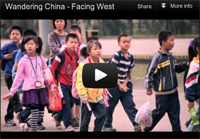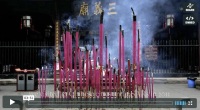Sino-US dialogue set to restore trust
By Tan Yingzi, Ai Yang and Wu Jiao
Source – China Daily, published May 21, 2010
WASHINGTON / BEIJING – Next week’s top-level dialogue between China and the United States will set the tone for smoother bilateral relations with candid reflections on past problems as well as discussions on those looming on the horizon, said observers.
The talks follow a series of difficult situations between the two nations, including a $6.4-billion arms sale package to Taiwan, Obama’s meeting with the Dalai Lama and Google’s departure from the mainland.
“The significance of the dialogue is that the two countries can enhance mutual understanding and strategic trust, which is conducive to smooth discussions if there are more frictions in the future,” said Tao Wenzhao, an expert on US studies at the Chinese Academy of Social Sciences.
An escalating situation on the Korean Pennisula and the European debt crisis will be among the top topics discussed at the talks between China and the United States next week, said senior officials from both sides.
The Second China-US Strategic and Economic Dialogue – the highest-level forum between the two countries – will bring together 50 representatives from more than 40 departments of both countries, Chinese Vice-Foreign Minister Cui Tiankai said on Thursday.
Cui said the dialogue would also include energy security, climate change, UN peacekeeping and anti-terrorism.
Regional issues including the sinking of a Republic of Korea warship, the Iran nuclear issue and the frequent intervention of US ships into China’s Exclusive Economic Zone will be among the remaining topics, according to diplomatic sources.
The dialogue, taking place May 24 and 25, will be co-chaired by Chinese Vice-Premier Wang Qishan and State Councilor Dai Bingguo, along with US Secretary of State Hillary Clinton and Treasury Secretary Timothy Geithner.
Economic pressures
Dean Cheng, Asian studies expert with the Heritage Foundation, said economic concerns would play a large role during the dialogue as the Obama administration is facing pressure to produce positive economic news before mid-term elections this November.
“It is important to recognize that 2010 is an election year,” he told China Daily.
Tuesday’s results in Pennsylvania, where incumbent Democratic senator Arlen Specter was defeated – coupled with a recently lost senate seat in Massachusetts and governorships in Virginia and New Jersey – mean the White House will have to focus on basic politics, he told China Daily.
“In the United States, it’s a function of economics, not foreign policy, especially when the recession continues to drag on.”
The US has been blaming an undervalued Chinese currency and imbalanced trade with China for its increasing job losses, an accusation China denies.
The Treasury Department’s senior coordinator for China affairs, David Loevinger, said the US is still concerned about the currency issue.
“We’ve been very clear with the Chinese that this remains a top priority. And I think what’s happening in Europe reinforces the imperative that China move quickly to promote homegrown, consumption-led growth in its own economy.”
Philip I. Levy, resident scholar of the American Enterprise Institute, said the Obama administration would try to deflect currency conversations into a multilateral setting like the June G-20 meetings.
“We are in a period of a few months during which Congress has tacitly agreed to let the Obama administration pursue quiet multilateral diplomacy. If that has not shown results by the end of June, Congress will likely lose patience and act.”
Yet Yuan Peng said discussions on currency are unlikely to see a major breakthrough.
“The European sovereign debt crisis has made the US realize that a sharp RMB rate change will do no good for the recovery of Western economies,” said Yuan.
China wants “quiet discussions” about exchange rate issues, and loud lobbying will only delay movement on the yuan, Zhu Guangyao said.
“External pressure and noise will do nothing but slow the reform process,” he said of the yuan exchange rate.
Zhu also said that for China, Europe’s debt crisis has laid bare the fragility of global finances and the US, too, must tame its fiscal deficit.
“We have noted that President Obama and Treasury Secretary Geithner have stressed they are paying attention to the problem of the excessively high US fiscal deficit,” Zhu said, noting that it was also “a matter of concern to China.”
“We hope that the US fiscal deficit will fall to a certain proportion of its GDP when the economy recovers and reaches a sustainable level,” said Zhu.
The US budget deficit hit $1.4 trillion in 2009, roughly 10 percent of the economy. The White House projects the deficit this year will reach $1.6 trillion.
Filed under: China Daily, Communications, Influence, International Relations, Media, Strategic Economic Dialogue












The Sharing Circle